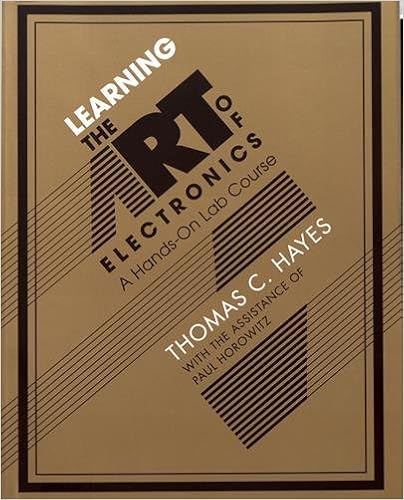Dave's Art of Electronics Labs
Join me on my journey to understand electronics by performing the labs from the book Art of Electronics
Tuesday, December 12, 2017
Tuesday, October 10, 2017
Update, new content coming soon
After a short break I'm back. I will resume where I left off, but this time I'm using the freshly updated 'Learning the art of electronics book`. This book is designed more for self study (it answers the questions it asks) and i'm finding the early chapters much more digestible than the older student manual/book combo
Friday, August 23, 2013
Lab 2.2 - Differentiator
This lab is designed to teach me about an RC Differentiator Circuit.
This circuit creates a pulse on a changing waveform (both rising AND falling). My calculus was rusty, but I found the animated graph on this derivatives page to be very helpful.If you load down the output this circuit will start to fail, but external buffering can address that (later in text).
 |
| 100 KHZ Square wave |
 |
| Blue is Input, Yellow is output |
 |
| Trying to view pulses on my analog scope when I increased the volts per div the line got fuzzy :( |
 |
| Settings on analog scope, alt seemed to work better then chop |
 |
| My lab notes, note: when I first tried this experiment in 2011 with my USB scope I couldn't see anything at all |
Thursday, August 22, 2013
Lab 2.1 - RC Circuit
This lab is designed to teach me about Capacitors and the RC time factor:
- An RC time constant is defined as:
- the TIME required to charge (or discharge) a capacitor, through a resistor to 63 % of goal.
- a capacitor fully charge/discharges over 5 rc time constants: 63% at a time.
- in just 2.2 time constants you are 90% there (63% to goal + 63% to goal + 12.6% to goal)


I aligned the trace so that it stretched from the 100% to 0% markers on my scope's screen. In order to do this I had to move the Horizontal time base 'cal' knob. I also used the time delay function to align the slope on the edge of the screen for maximum viewing
The very simple circuit as built. Of course I got excited and managed to use the wrong value of capacitor, but I finally realized my mistake and replaced my .001uf with a .01uf
Lab notes.
Welcome to my blog
This blog is going to contain my progress, status, failures and notes as I proceed through the workbook "Student Manual for The Art of Electronics".
It is a workbook designed to help students understand the book "The Art of Electronics" by performing various lab tests. The Art of Electronics is often hailed as THE authority on electronics. As someone who has reached an intermediate (or maybe advanced beginner) I believe it is time for me to (once again) attempt to master this massive (1000+ page) tome of greatness.
Subscribe to:
Comments (Atom)










